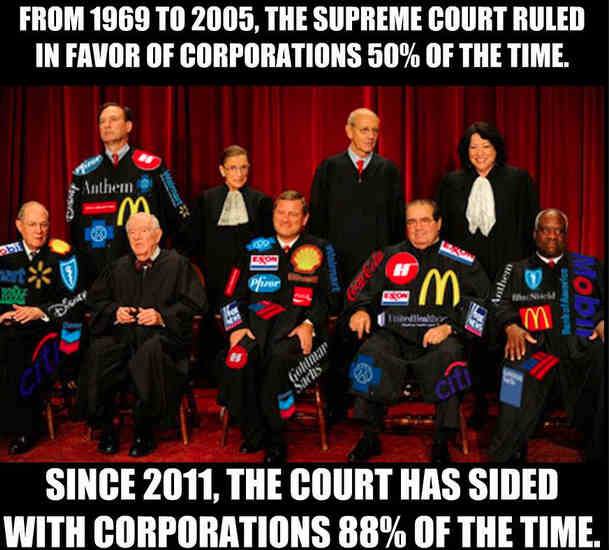| Online: | |
| Visits: | |
| Stories: |

| Story Views | |
| Now: | |
| Last Hour: | |
| Last 24 Hours: | |
| Total: | |
How often Does the U.S. Supreme Court Side with Corporation? When you See this, Duck!
Thursday, August 7, 2014 23:49
% of readers think this story is Fact. Add your two cents.
There’s no legal difference between you and a corporation, right? And like other ‘people’, they make mistakes, right’
Tere’s a term that describes a situation when a court makes something out of nothing: It’s called legal fiction. This jargon refers to the law’s ability to decree that something that’s not necessarily true is true. It’s somewhat like a person in a discussion agreeing to accept an opinion as fact for the sake of argument in order to move the discussion along. Legal fiction helps to move proceedings along.
A sterling example of legal fiction is what’s called corporate personhood. Think about it: A corporation isn’t a person. It’s a business, a pool of investors’money used to conduct transactions and hopefully make a profit. But in order to determine the legality of business proceedings, the legal fiction of treating a corporation as an artificial personwas created.
This concept isn’t new. In ancient Roman law, a corporation was considered a juristic person: a single, nonhuman entity that legally represented a group of many people [source: Sherman]. The idea makes sense; after all, a corporation is made up of people’s financial contributions.




